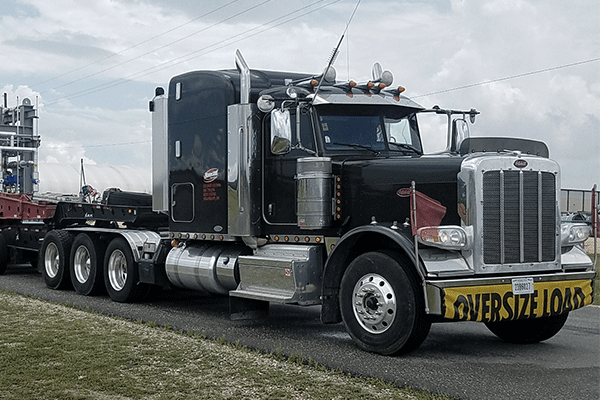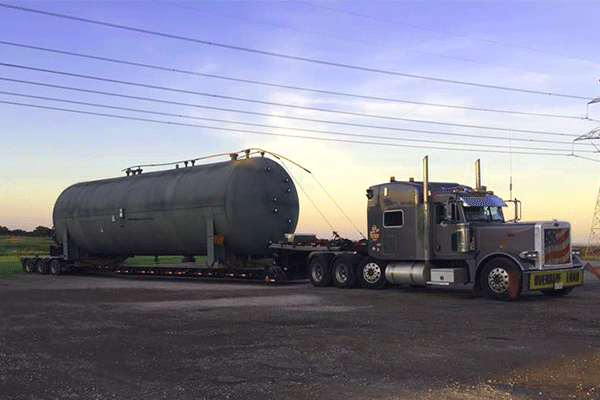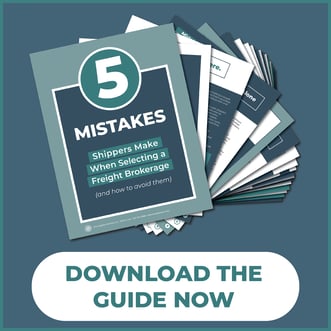In 2017, there were more than 17,000 freight brokerage businesses in the United States of America, the nation we call home. From sea to shining sea, this core section of the transportation industry can be found at practically every turn of a shipper’s head.
And you know what? New brokers pop up every day.
With such slim barriers to entry and so much opportunity for growth, it’s no wonder that the business of freight brokerage draws so much attention from practically anyone with a stable internet connection and working computer.
Though the pure density of this nation’s freight brokerages offers a wide array of choices for companies with cargoes to move, it has its downsides as well. Picking a reliable, quality and competent freight broker from this field has only become more difficult as the field has grown.
But that doesn’t mean brokers don’t have anything to offer.
Here at ATS Logistics, we’ve been operating as a freight brokerage since 1989. And, even though we’re technically classified as a large-sized brokerage, our knowledge of this industry extends beyond this label.
You deserve answers to your most pressing freight-brokerage-specific questions, queries like “what size brokerage should I choose” are no exception.
To give you the information you need to make the best possible decision for your freight, this article will outline:
- What is considered a small freight brokerage?
- What the advantages of using a small freight brokerage are.
- What the disadvantages of using a large freight brokerage are.
What is Considered a Small Freight Brokerage?
The freight brokerage industry is full of companies of all sizes, types and specialties. For this article, though, let’s narrow our gaze to businesses that bring in less than 50 million dollars in net revenue per year.
Although this is still a significant chunk of change, comparatively speaking these companies are at the lower end of the freight-brokerage size spectrum. Next to larger brokerage firms, companies of this size meet a different set of needs, creating a pool of offerings distinguished from their larger counterparts.
Many shippers prefer to work with smaller freight brokers for many reasons, let’s talk about some of them.

What Are The Advantages of Working With a Smaller Broker?
Everything you’ll ever do will have upsides and downfalls, reasons to continue and reasons to quit. Understanding these things ahead of time — what you’ll get from each endeavor and what you simply won’t — help you to set expectations accordingly and make educated pre-planned decisions.
Working with a freight brokerage to meet your transportation requirements is no different.
The main advantages of working with a small freight brokerage that you’ll want to take note of are:
- Streamlined communication via a single point of contact.
- The relationships and understandings you’ll develop.
- Small freight brokers are typically more specialized.
1. Streamlined Communication Via a Single Point of Contact
In the transportation world — a world brimming with unique jargon, cost factors and sudden outcrops of unexpected delays — consistent and reliable communication between parties is non-negotiable.
Streamlining communication — and making it easy to get in touch with your freight’s point-of-contact — is where smaller freight brokerage operations thrive.
If you’re looking for ease-of-use in your transportation provider, a company that you can access at the touch of a button, the whoosh of an outgoing email or the dial of a phone, start your search by analyzing small freight brokers.
What these companies lack in annual revenue, they make up for in customer loyalty and service. You’ve given them your freight, they’ve found your truck and up until the moment your freight is received your freight brokerage contact will be there.
Small brokers are ready, willing and able to answer your questions, step in to find a solution when things go wrong and communicate to any extent you specify.
2. The Relationships And Understandings You’ll Develop

Do you know what happens when a single point of contact at your transportation provider communicates with you consistently and is always there when you reach out?
Relationships and a comprehensive understanding of your business’s processes and needs are developed. Though these relationships many times extend beyond the business of moving freight, the impact they make within it are undeniable.
In an industry as complex as transportation can be, having a partner that understands your business, the requirements of your commodities and the needs of your customers can prove invaluable.
Many times, smaller freight brokerages can develop these understandings and intimacies better than larger operations.
If you’re looking for a true transportation partnership that will become an extension of your supply chain and an ally in times of uncertainty, look no further than a small freight brokerage.
3. Small Freight Brokers Are Typically More Specialized
Freight brokerage companies that bring in less than 50 million dollars in revenue per year, don’t have the same resources and reach as those that make 10 times that.
As a result, smaller brokerages typically narrow their service offerings to a collection of things they do well. Even though this makes it more difficult for these brokers to extend their reach beyond moving a niche group of commodities — be it dry van, temperature-controlled, or open-deck freight — they become experts in the services they offer.
As such, for shippers looking for the competent oversight only an expert provider can offer and don’t have an expansive set of transportation requirements, small brokerages will do the job — and do it well.
What Are The Disadvantages of Working With a Small Freight Broker?
Just as every service offering and provider type in the transportation industry has its downsides, small freight brokers have a few that you should be aware of.
As a shipper with cargoes to move, it’s important that you see the whole picture before deciding definitively on using only small brokerages going forward.
The top three disadvantages of working with a small freight brokerage are:
- Small freight brokers aren’t always financially stable
- Small freight brokers have fewer resources than larger firms
- Small freight brokers offer fewer service offerings than larger brokers.
1. Small Freight Broker Aren’t Always Financially Stable
Since these businesses don’t have the monetary backing of large freight brokerage firms, their stability in times of variability can be questionable.
And variability isn’t uncommon in the transportation world.
You see, the price of your freight shipments — especially when quoted using spot quotes — can change substantially from one day to the next. As supply and demand in your origin fluctuate and things change in your freight’s destination, it’s not surprising to see the price of transportation services change overnight.
Where larger brokers can weather this “storm” and stick to their originally-quoted prices — even if it means taking a hit now and then — small brokers don’t have this ability.
As a result, customers working with these companies might be solicited for more money when the market shifts.
When this happens with regularity it can take a damaging toll on these shipper-broker relationships and the bottom lines of each.
2. Smaller Freight Brokers Have Fewer Resources Than Larger Firms
Some of the biggest freight brokerages have networks of hundreds of thousands of thoroughly-vetted carriers at their disposal and have teams of transportation experts dedicated to customer success.
Maintaining relationships with this amount of carriers and hiring the employees needed to do so, isn’t possible for small freight brokerages.
As a result, shippers who work with smaller companies are left without the luxury of options.
For example:
If you need to send freight from a town in Ohio to customers in the Northwest a small freight broker might be able to do this for you. However, should you also need to reach customers in the Southeast, a small freight brokerage might not have the ability to help you reliably do both.
Larger brokerages on the other hand will have in-house specialists with their fingers on the pulse in these areas that can find you a competitively-priced solution to move cargo into each of these regions.

3. Small Freight Brokers Have Fewer Service Offerings
Freight brokers with fewer resources, employees and reach are only able to offer a minute breadth of services — relatively speaking.
Although this allows these companies to become highly specialized in their service offerings of choice, it also removes them from contending for a lot of business.
If you’re a shipper with needs that range from heavy haul transportation to over-dimensional open-deck freight and dry van transport, small brokers won’t match what large operations can offer you.
As such, make sure to take stock of your business's needs and should you require a wide variety of services, small freight brokers won’t be your best option.
How to Choose The Right Brokerage For You?
Look, here at ATS Logistics we understand how difficult it can be for shippers to find and select a good freight brokerage. A freight broker that will come through for you when you need it, find you a solution when things go wrong and educate you whenever you’re confused, isn’t easy to find.
That said, there are 5 common mistakes that shippers make when making their initial freight brokerage selection decision. These mistakes end up costing these companies money as they’re left searching for another option in the end.
But these freight brokerages selection mistakes are also avoidable.
To help you do so, download our Common Mistakes Guide today. This tool will give you a comprehensive outline of the common mistakes shippers make when choosing a provider and supply some tips for avoiding their impact when selecting yours.
If you have any questions about how ATS Logistics can help you on your journey toward becoming the supplier that always delivers, reach out. We have a transportation expert standing by to assist you in any way you need.





